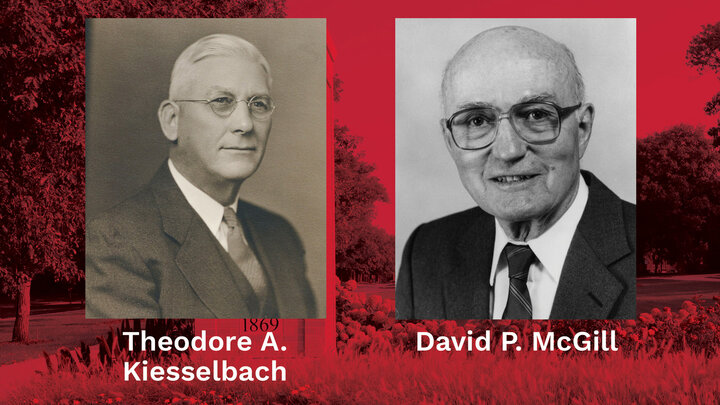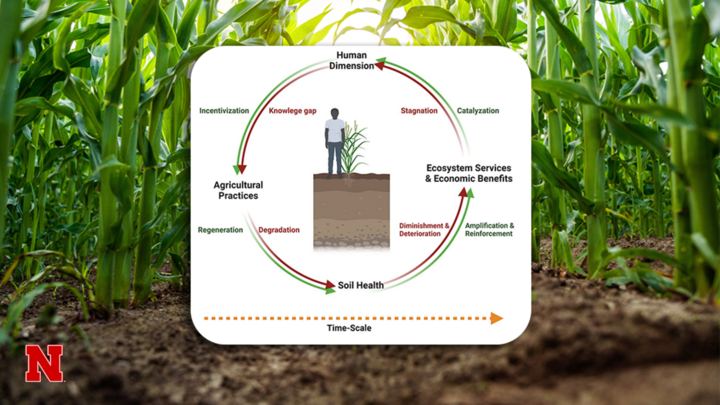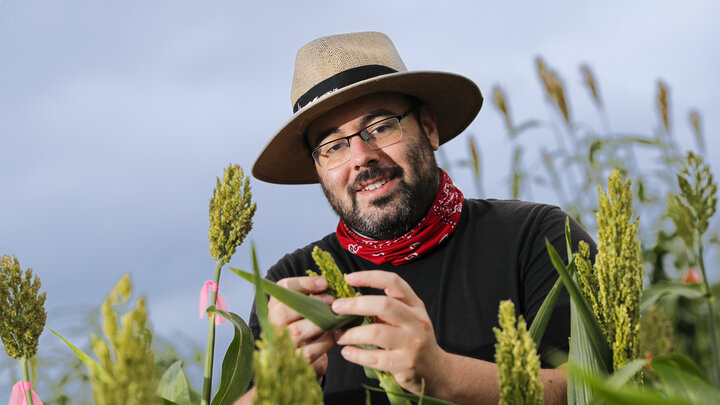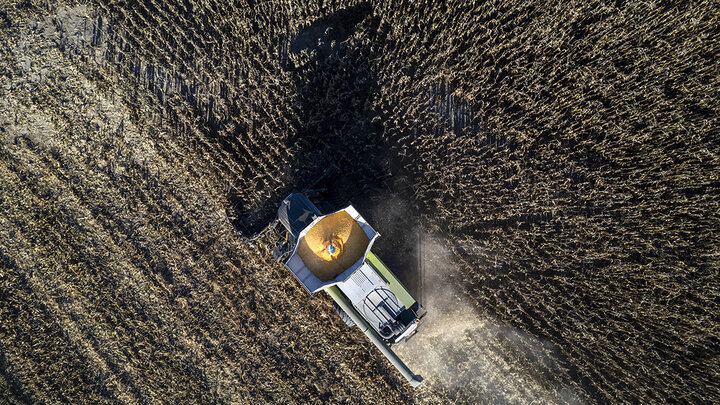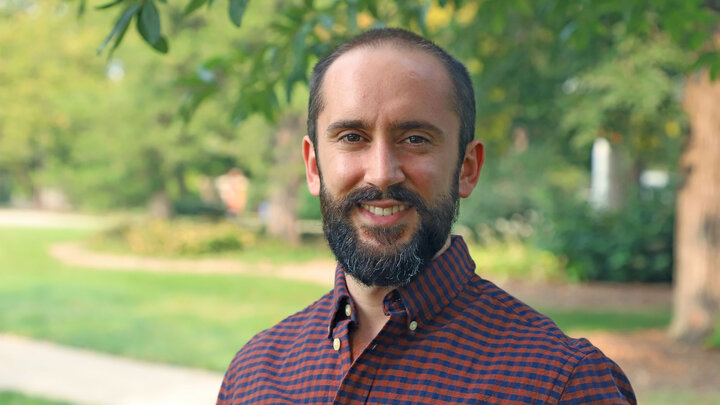The late Theodore Alexander Kiesselbach and the late David P. McGill, University of Nebraska–Lincoln alumni, received the Department of Agronomy and Horticulture 2023 Alumni Lifetime Achievement Award. They will be honored at the department’s Spring Banquet at the Nebraska East Union on Monday, April 15, 2024.
This award is the highest honor bestowed upon graduates of the Department of Agronomy and Horticulture who have made significant contributions to their community, state and nation through professional service, public service and/or civic engagement.
Kiesselbach was internationally renowned for his pioneering work in corn crossbreeding, corn hybrids and crop improvement. He played a key role in developing hybrid varieties of corn and helped improve other crops through his team’s research in the Agronomy Department in the College of Agriculture at the University of Nebraska–Lincoln.
Kiesselbach graduated with a Bachelor of Arts and a Bachelor of Science in agriculture from Nebraska in 1907 and 1908 and received his master’s and doctorate degrees in agriculture in 1912 and 1918. He trained with the late Charles Bessey, professor of botany at Nebraska.
Kiesselbach accepted a graduate assistant position as an assistant with Edward G. Montgomery, then head of the University of Nebraska Agricultural Experiment Station. He joined the faculty at Nebraska first as a field crops instructor in 1909, a professor of experimental agronomy in 1912, and a professor of agronomy in 1917, a position he held until his retirement in 1952.
In 1909, he attended the National Corn Exposition in Omaha, Nebraska, where he saw scientists, George A. Schull and Edward M. East, lecture on hybrid corn, seen at that time as dangerous. Kiesselbach and Montgomery initiated work on crossbreeding corn and in 1913 became the first scientists to develop corn hybrids west of Connecticut. After several devastating droughts, Kiesselbach's hybrid became popular in the 1930s, and by 1949, accounted for $42 million of Nebraska's crop income.
Kiesselbach was a tireless researcher and author and was recognized worldwide for his publication “The Structure and Reproduction of Corn,” published in 1949 as a Nebraska Agricultural Experiment Station Research Bulletin. It became a seminal reference for plant scientists and was widely adopted. In 1980, the University of Nebraska Press republished the article as a book and printed another edition in 1999 for the publication’s 50th anniversary.
The University of Nebraska dedicated the Kiesselbach Crops Research Laboratory in his honor in 1969.
McGill is considered one of the most noted teachers in the history of the College of Agricultural Sciences and Natural Resources at Nebraska. During his 33-year career, he taught genetics to more than 8,000 students and served as an adviser to individual students and student organizations. He had an enduring impact as a teacher because he focused on his students and had a strong desire to see them succeed in learning.
He graduated with a Bachelor of Science degree in 1941 from the Department of Agronomy at Nebraska. After graduation he took a position with the Soil Conservation Service in Pawnee County where he remained until 1942, when he was drafted into the United States Army.
In 1944, McGill went overseas as motor officer with a Battalion Headquarters Company of the 78th Infantry Division. Having attained the rank of captain, he was separated from active duty in April 1946 and returned home.
He then began working in research at Nebraska’s agronomy department where he earned his master’s degree in agronomy in 1950. He received his doctorate degree in 1955 at Iowa State University.
When the late agronomy professor Franklin D. Keim, who had been the lead teacher in the agronomy introductory genetics course, died suddenly in the spring of 1956, McGill was asked to take over. He had little experience teaching, but being a talented and versatile individual, he adapted readily to his new responsibility. Teaching genetics was his primary assignment from then until he retired in 1989.
In spite of the great diversity and the varying backgrounds of his students, he had the capability of bringing along all who made a reasonable effort to learn. There was no limit to the time he would spend with students who came to him for individual help. Year after year, students ranked McGill No. 1 on the College of Agriculture campus.
In 1963, McGill took on a part-time role as assistant to the late Elvin F. Frolik, Dean of the College of Agriculture, now called the Vice Chancellor of the Institute of Agriculture and Natural Resources. He continued to serve in this capacity under the next three IANR Vice Chancellors Duane Acker, Martin Massengale and Roy C. Arnold. McGill also served as interim head of the Department of Agronomy for six months while working as assistant to Arnold.
A hard red winter wheat developed cooperatively by the University of Nebraska and the USDA-ARS is named for McGill and developed as NE01481.
Full biographies of award recipients are available at https://agronomy.unl.edu/alumni-lifetime-achievement-award-2023
The award was founded in 2016 to recognize alumni who have enhanced the reputation of the department and the university by distinguishing themselves in their careers. Honorees are selected by the Agronomy and Horticulture Alumni Advisory Council.
